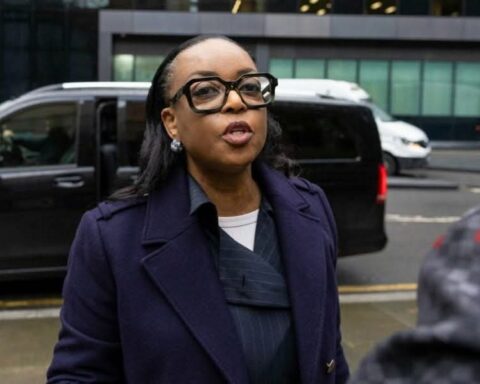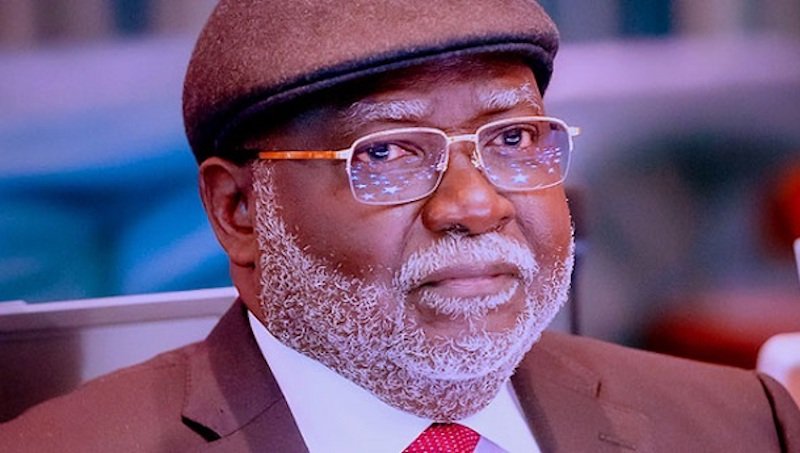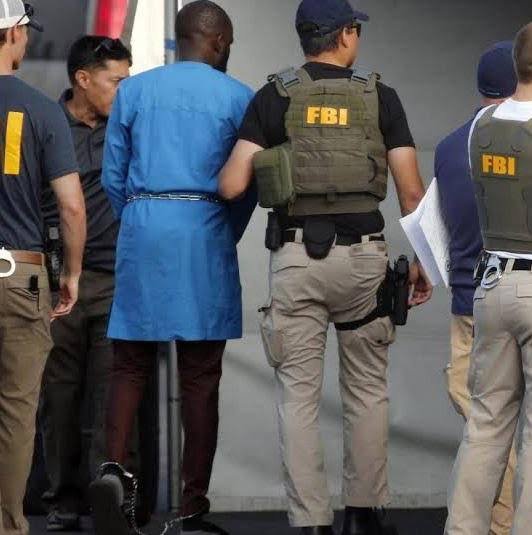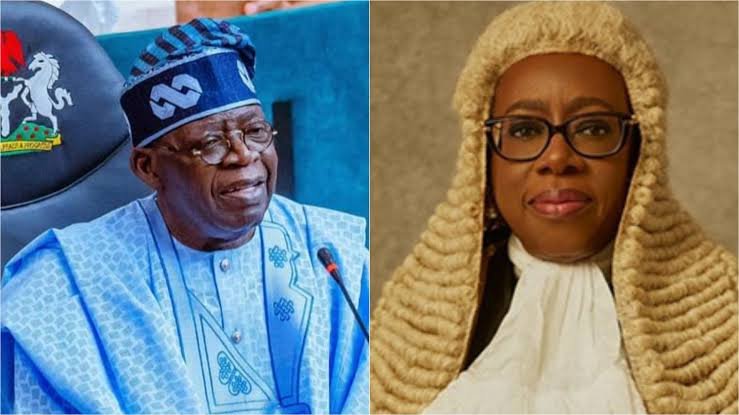-
Supreme Court may uphold law that could shut down TikTok, as both Republicans and Democrats in Congress see the app’s Chinese ownership as a national security threat. A law requires it to be sold or effectively shut down in the United States.
The Supreme Court on Friday grappled over a law that could determine the fate of TikTok, a wildly popular social media platform that has about 170 million users.
Congress enacted the law out of concern that the app, whose owner is based in China, is susceptible to the influence of the Chinese government and posed a national risk. The measure would effectively ban TikTok from operating in the United States unless its owner, ByteDance, sells it by Jan. 19.
Here are some key takeaways:
The court appeared likely to uphold the law
While the justices across the ideological spectrum asked tough questions of both sides, the overall tone and thrust appeared to suggest greater skepticism toward the arguments by lawyers for TikTok and its users that the First Amendment barred Congress from enacting the law.
The questioning opened with two conservative members of the court, Justice Clarence Thomas and Chief Justice John G. Roberts Jr., suggesting that it was not TikTok, an American company, but its Chinese parent company, ByteDance, that was directly affected by the law.
Another conservative, Justice Brett M. Kavanaugh, focused on the risk that the Chinese government could use information TikTok is gathering on tens of millions of American teenagers and twentysomethings to eventually “develop spies, turn people, blackmail people” when they grow older and go to work for national security agencies or the military.
Justice Elena Kagan, a liberal, asked why TikTok could not just create or buy another algorithm rather than using ByteDance’s.
And another liberal, Justice Ketanji Brown Jackson, said she believed the law was less about speech than about association. She suggested that barring TikTok from associating with a Chinese company was akin to barring Americans from associating with foreign terrorist groups for national security reasons. (The Supreme Court has upheld that as constitutional.)
Still, several justices were skeptical about a major part of the government’s justification for the law: the risk that China might “covertly” make TikTok manipulate the content shown to Americans or collect user data to achieve its geopolitical aims.
Both Justice Kagan and Justice Neil M. Gorsuch, a conservative, stressed that everybody now knows that China is behind TikTok. They appeared interested in whether the government’s interest in preventing “covert” leveraging of the platform by a foreign adversary could be achieved in a less heavy-handed manner, like appending a label warning users of that risk.
Lawyers for TikTok and for its users argued that the law is unconstitutional.
Two lawyers argued that the law violates the First Amendment: Noel Francisco, representing both TikTok and ByteDance, and Jeffrey Fisher, representing TikTok users. Both suggested that concerns about potential manipulation by the Chinese government of the information American users see on the platform were insufficient to justify the law.
Mr. Francisco contended that the government in a free country “has no valid interest in preventing foreign propaganda” and cannot constitutionally try to keep Americans from being “persuaded by Chinese misinformation.” That is targeting the content of speech, which the First Amendment does not permit, he said.
Mr. Fisher asserted that fears that China might use its control over the platform to promote posts sowing doubts about democracy or pushing pro-China and anti-American views were a weaker justification for interfering in free speech than concerns about foreign terrorism.
“The government just doesn’t get to say ‘national security’ and the case is over,” Mr. Fisher said, adding, “It’s not enough to say ‘national security’ — you have to say ‘what is the real harm?’”
The Biden administration defended Congress’s right to enact the law.
The solicitor general, Elizabeth B. Prelogar, argued that Congress had lawful authority to enact the statute and that it did not violate the First Amendment. She said it was important to recognize that the law leaves speech on TikTok unrestricted once the platform is freed from foreign control.
“All of the same speech that’s happening on TikTok could happen post-divestiture,” she said. “The act doesn’t regulate that at all. So it’s not saying you can’t have pro-China speech, you can’t have anti-American speech. It’s not regulating the algorithm.”
She added: “TikTok, if it were able to do so, could use precisely the same algorithm to display the same content by the same users. All the act is doing is trying to surgically remove the ability of a foreign adversary nation to get our data and to be able to exercise control over the platform.”
The court appears unlikely to wait for Trump.
President-elect Donald J. Trump has asked the Supreme Court to issue an injunction delaying the law from taking effect until after he assumes office on Jan. 20.
Mr. Trump once shared the view that Chinese control of TikTok was an intolerable national security risk, but reversed course around the time he met with a billionaire Republican donor with a stake in its parent company.
If the court does uphold the law, TikTok would effectively be banned in the United States on Jan. 19, Mr. Francisco said. He reiterated a request that the court temporarily pause the law from taking effect to push back that deadline, saying it would “simply buy everybody a little breathing space.” It might be a “different world” for TikTok after Jan. 20, he added.
But there was scant focus by the justices on that idea, suggesting that they did not take it seriously. Mr. Trump’s brief requesting that the court punt the issue past the end of President Biden’s term so he could handle it — signed by his pick to be the next solicitor general, D. John Sauer — was long on rhetoric extolling Mr. Trump, but short on substance.
What are the alternatives to TikTok?
On Friday, the Supreme Court heard arguments in the case that will determine the fate of TikTok in the United States. While some users and creators are holding out hope that the ban will not go into effect and that they’ll be able to continue using the app, justices seem poised to uphold the law that could slowly render it defunct.
As the court’s decision looms, some of the platform’s roughly 170 million users in the United States are starting to wonder: Where is everyone going instead?
There have been some murmurs about Lemon8, a highly visual social media app focused largely on lifestyle content that has the same Chinese owner as TikTok, ByteDance. Resembling a hybrid between Instagram and Pinterest, Lemon8 first launched in Japan in 2020 and has slowly rolled out in other countries.
In 2023, as lawmakers in Washington were grilling TikTok’s chief executive, ByteDance was quietly pushing creators to join Lemon8 and offering potential paid incentives. But because of its ownership, the platform could be subject to the same law as TikTok.
If Lemon8 were to be banned as well, TikTok users would largely be limited to long-established social media platforms like Instagram and YouTube, which have added features in recent years to compete with TikTok.
Instagram, for instance, rolled out its vertical video feature, Reels, in 2020 as an answer to the ByteDance-owned platform. Initially, some users found that Reels left a lot to be desired, but its vertical video format is visually similar to TikTok, and some users already cross-post TikTok content there.
YouTube introduced YouTube Shorts the same year, allowing for short-form videos of up to one minute.
And, of course, there’s the traditional YouTube video format. In recent years, TikTok has been putting an emphasis on longer videos, which means creators and users alike may be primed to begin making and watching video content that seems at home on YouTube, rather than YouTube Shorts.
Yumna Jawad, a recipe developer and content creator who goes by Feel Good Foodie, said she felt prepared for the potential ban because she had taken pains to make sure she never relied too heavily on a single platform in her work.
“I was on Flipboard. I’m trying to figure out Lemon8 and Threads,” said Ms. Jawad, who is 42 and lives in Grand Rapids, Mich. “There’s constantly a new one, and I’m always open to trying things out.”
The court fast-tracked the TikTok case. What happens next?
It usually takes the Supreme Court about three months after an argument to issue a decision. Its biggest rulings tend not to arrive until late June, no matter how early in the term the cases were argued.
But the case it heard on Friday is different. TikTok faces a Jan. 19 deadline under a federal law requiring it to be sold or effectively banned in the United States, and the justices will very likely issue a ruling before then — perhaps as soon as next week.
That ruling may not resolve the core question in the case. When TikTok filed its emergency application last month, it asked the court to block the law “pending further review.” The court did not act on that request when it agreed to hear the case, saying instead that it was “deferred pending oral argument.”
It is possible, then, that the justices rule first on that interim question of whether to put the law on hold while they consider its constitutionality. If they deny the request for a temporary pause, TikTok will be in trouble.
The court could also skip that step and rule quickly on the law’s constitutionality. When it granted review, the court asked the parties to address this question using the law’s formal title: “Whether the Protecting Americans from Foreign Adversary Controlled Applications Act, as applied to petitioners, violates the First Amendment.”
If the justices follow their usual practices, they will meet soon to cast tentative votes at a private conference. The senior justice in the majority will then assign the majority opinion to a colleague or, just as likely, keep it. Draft opinions, possibly including concurrences and dissents, will be prepared and exchanged.
All of this will most likely happen at an unusually brisk pace given the complexity of the legal issues and the stakes involved.
TikTok is facing legal backlash around the world
The Romania government accused TikTok of violating Romanian regulations and said that Russian-managed bots were in part responsible for spreading Calin Georgescu, an ultranationalist, in November’s election.
Russia fined TikTok for not removing prohibited content. The results of a presidential election in Romania were thrown out over concerns the app had been used to spread foreign influence. Albania banned TikTok for a year following the stabbing death of a teenager by another one after the two quarreled online.
“Either TikTok protects the children of Albania, or Albania will protect its children from TikTok,” the prime minister, Edi Rama, said on X.
That was all in just the last month.
On Friday in the United States, where about 150 million people use the app, TikTok and its Chinese parent company, ByteDance, asked the Supreme Court to strike down a law that would force the app to be sold or effectively banned. The Court, in more than two hours of arguments, seemed inclined to uphold the law.
TikTok has confronted legal and political scrutiny around the world in recent years, facing outright or partial bans in at least 20 countries, as governments have grown alarmed by its ties to China and its wide influence, especially among young people.
Despite the mounting scrutiny, TikTok remains incredibly popular worldwide. More than a billion people use the app every month.
TikTok’s novelty comes from its proprietary algorithm, which recommends a constant stream of content, mostly short videos, calibrated to keep people scrolling. ByteDance pioneered the technology in 2016 with TikTok’s sister app, Douyin, which has become one of China’s most popular apps and drives the majority of the company’s revenue. ByteDance knew it could be a hit overseas and launched TikTok in 2017.
But as TikTok’s algorithm captured attention spans around the world, it alarmed lawmakers, who say TikTok has quickly turned from a domain of cat videos and dance trends into a potentially disruptive social, political and economic force.
The Supreme Court has previously considered, and then avoided, a major decision on social media speech
The Supreme Court weighed a significant question during Friday’s arguments over a law that could effectively ban TikTok in the United States because of its Chinese ownership: When is the government able to limit a venue for speech if it believes doing so will protect national security?
It wasn’t the first time the Supreme Court has been forced to confront the dominant role that online platforms like Facebook, X and Google play in hosting cultural conversations, political debates and — at times — violent or hateful content.
In many of those cases, the Supreme Court has considered — then dodged — a major decision on the parameters of speech on social media platforms.
In 2023, lawyers for relatives of victims of the Islamic State argued in front of the court that Google should be held liable for recommending content posted by the terrorist organization. The company’s defense relied heavily on Section 230, a part of a 1996 law that shields those hosting content online from liability. It also heard a case against X, then known as Twitter, that argued the company was liable under an antiterrorism law for its role in boosting the reach of extremist content.
The court declined to hold the companies responsible for the content, but avoided ruling on the substantive question of when liability might occur.
Last year, the court considered challenges to two state laws aimed at curbing the power of social media companies to moderate content. A law passed in Florida prevented the platforms from permanently barring candidates for political office in the state, while a Texas law prohibited the platforms from removing any content based on a user’s viewpoint.
The justices sent the issue back to lower courts. But the court said that the First Amendment “does not go on leave when social media are involved,” allowing the tech companies to declare victory.
The court has also considered the limits of the government’s role in policing speech online.
Last year, the justices rejected a Republican challenge that sought to prevent the government from contacting social media platforms to combat what it said was misinformation. A group of states and internet users brought the lawsuit against the Biden administration for urging platforms to take down posts on topics like the coronavirus vaccine and claims of election fraud.
The court rejected the plaintiff’s effort because it said those plaintiffs had not been directly harmed by the actions in question. Still, the decision avoided defining the constitutional limits on the government’s ability to influence decisions made by social media companies.
Legal experts watching Friday’s proceedings said that TikTok was facing an uphill battle. “TikTok is still going to lose,” said Alan Rozenshtein, a former national security adviser to the Justice Department and an associate professor at the University of Minnesota Law School. “I think the court wants to uphold the law but it is also struggling with how they’re going to do that in a way that doesn’t really undermine the First Amendment more broadly, and that’s hard to do.”
TikTok, caught flat-footed by the law, leaned in to Republicans in the last year
TikTok was caught flat-footed by the passage of the law that it challenged before the Supreme Court on Friday despite spending millions of dollars to lobby the government in recent years. Since then, the company has sought to appeal to its users, the broader American public and especially to Republicans to help reshape its image in the United States and ensure its future in the country.
The company has been on an advertising blitz in the last year, putting millions of dollars into television commercials featuring TikTok users, including a nun in New Jersey, a Navy veteran known as Patriotic Kenny and drawling ranchers.
Inside TikTok, there has been little acknowledgment that the company might soon be effectively banned in the United States, despite its thousands of employees here, according to several who spoke with The New York Times. The employees said that executives have, at times, made light of the possible ban, suggesting in one meeting that it would someday be the subject of a Hollywood film.
TikTok’s most effective advocacy efforts seem to have taken place with one of ByteDance’s billionaire investors and with Republican officials.
TikTok sought a line into Republicans and the Trump campaign through Tony Sayegh, who was a Treasury official in the first Trump administration, The Times reported in November. Mr. Sayegh leads public affairs for Susquehanna International Group, the trading firm co-founded by the billionaire investor Jeff Yass. Mr. Yass is a Republican megadonor who owns a significant share of ByteDance, TikTok’s owner.
President-elect Donald J. Trump, a onetime proponent of banning TikTok, publicly changed his stance on the app in March, around the same time that he had met with Mr. Yass, though Mr. Trump has said that they did not discuss the company.
Mr. Sayegh was also an important part of the Trump campaign’s decision to join TikTok this summer, The Times reported. Mr. Trump was an instant hit on the app and his family members, including Ivanka Trump, Donald Trump Jr. and his granddaughter Kai Trump are popular on TikTok.
Last month, TikTok executives, including Shou Chew, its chief executive, met with Mr. Trump at Mar-a-Lago, his Florida resort. Around the time of that meeting, TikTok officials told people in Mr. Trump’s orbit, and possibly the president-elect himself, that Mr. Trump should be the one to decide TikTok’s fate, The Times reported. After the meeting, Mr. Trump told reporters that he had a “warm spot” for TikTok and that he would look into the issue. He has since filed an unusual brief asking the Supreme Court to block the new law.
The law is scheduled to go into effect the day before Mr. Trump’s inauguration. Once in office, Mr. Trump would be granted the power through the law to issue a one-time 90-day extension if he determined sale talks were underway.
Sabrina Sohail, an activist at the advocacy group Campaign for Uyghurs, which filed an amicus brief in support of the ban, said she was afraid of what the Chinese government could do to its dissidents overseas using the data that TikTok has. “What’s happening to the Uyghur people is probably the best example of how modern technology, data, surveillance technology and mobile data can be aggregated and used in order to target any group of people based on predictive behavior,” she said. “The possibilities are endless on how it could be weaponized to be used against American citizens.”
Breonna Stephens, a 25-year-old TikTok creator in Dallas who live-streamed the arguments, said the proceedings gave her some hope but she was still anxious about what might happen to her account and livelihood in the coming weeks. About 125,000 viewers tuned into her stream, she said.
Selling TikTok could be difficult
If TikTok’s parent company, the Chinese firm ByteDance, is forced to sell the app, who would buy it?
ByteDance has said a sale is not feasible. The Chinese government has indicated that it would block a sale if it includes the algorithm that makes TikTok extremely valuable. Even if Beijing were to allow a sale, any deal for TikTok that includes its algorithm would be expensive: The research firm CB Insights recently estimated that ByteDance was worth $225 billion, though it is less clear how much the U.S. version of TikTok would cost on its own.
The price would most likely limit the pool of potential buyers to a coalition of private equity firms; a corporate behemoth, like Microsoft; or a combination of the two. Such a large acquisition by a big tech company would be likely to raise antitrust concerns, though a buyer could try to appeal to President-elect Donald J. Trump, who has vowed to protect the app.
Still, at least one suitor has tossed his hat in the ring to buy TikTok without its algorithm: the billionaire Frank McCourt, who sent ByteDance a letter on Thursday proposing a deal. Mr. McCourt’s interest in acquiring TikTok stems from his prior efforts to rethink the internet. He has said that he hopes to run TikTok with a focus on privacy and safer use of data.
Mr. McCourt, the former owner of the Los Angeles Dodgers, said in an interview this week that his advisers, which include the investment bank Guggenheim Securities, are valuing TikTok without its algorithm at around $20 billion — or roughly the market value of the social media company Snap. Private equity funds, family offices and high-net-worth individuals, including the “Shark Tank” star Kevin O’Leary, have indicated that they would invest in the deal, he said. He has also secured debt financing.
Mr. McCourt said he had spoken with nearly “all the investors” in ByteDance, though he declined to specify which ones. “They’re as in the dark as we are” about ByteDance’s plans, he said. Some of ByteDance’s largest U.S. backers include the investment firms General Atlantic, Susquehanna and Sequoia Capital, and they have billions of dollars at stake.
Representatives for Susquehanna and Sequoia did not respond to a request for comment. General Atlantic declined to comment.
The last time ByteDance sought to sell TikTok, during Mr. Trump’s first term, it nearly finalized a deal with Oracle and Walmart. TikTok continues to store U.S. data on Oracle’s servers as a way to address national security concerns. Oracle’s co-founder, Larry Ellison, is a longtime Trump supporter and could potentially help with any sale talks. It is not clear whether Oracle or Walmart will jump into the fray again.
Francisco finishes his rebuttal on behalf of TikTok and the arguments are over.
We are now about two and a half hours into these arguments. Two lawyers — one for TikTok and ByteDance, and one for TikTok users — have argued that the law violates the First Amendment. The U.S. solicitor general has argued that Congress had a right to force ByteDance to sell TikTok or ban the service, as a matter of protecting national security. Noel Francisco, the lawyer for TikTok, is now up again for rebuttal, and is ticking through a series of points he came up with while listening to the arguments.
How has the Supreme Court ruled when national security and free speech clash?
The Supreme Court has a mixed record in ruling on First Amendment challenges to laws whose restrictions on speech have been justified by supposed threats to national security.
In 1965, during the Cold War, the court struck down a law requiring people who wanted to receive foreign mail that the government had deemed “communist political propaganda” to say so in writing.
“This act is at war with the ‘uninhibited, robust, and wide-open’ debate and discussion that are contemplated by the First Amendment,” Justice William O. Douglas wrote for a unanimous court in the case, Lamont v. Postmaster General, quoting from New York Times v. Sullivan, the landmark 1964 libel decision.
The Lamont decision was the first time the court had ever held a federal law unconstitutional under the First Amendment’s free expression clauses. It was also the first Supreme Court opinion to feature the phrase “marketplace of ideas,” a key metaphor for one conception of the value of free speech. And it was the first Supreme Court decision to recognize a constitutional right to receive information, a point that figures in the TikTok case.
A few years after the Lamont decision, the Supreme Court again rejected the invocation of national security to justify limiting speech, ruling in 1971 that the Nixon administration could not stop The New York Times and The Washington Post from publishing the Pentagon Papers, a secret history of the Vietnam War. The court did so despite government warnings that publishing would imperil intelligence agents and peace talks.
“The word ‘security’ is a broad, vague generality whose contours should not be invoked to abrogate the fundamental law embodied in the First Amendment,” Justice Hugo Black wrote in a concurring opinion.
The Supreme Court struck a different balance in its most recent major effort to balance claims about the nation’s safety against its commitment to free expression.
That decision, Holder v. Humanitarian Law Project in 2010, concerned a law that made it a crime to provide even benign assistance in the form of speech to groups said to engage in terrorism. One plaintiff, for instance, said he wanted to help the Kurdistan Workers’ Party find peaceful ways to protect the rights of Kurds in Turkey and to bring their claims to the attention of international bodies.
Writing for the majority, Chief Justice John G. Roberts Jr. said that Congress and the executive branch were in a better position to assess threats to the nation’s safety.
“Respect for the government’s factual conclusions is appropriate,” the chief justice wrote, “in light of the courts’ lack of expertise with respect to national security and foreign affairs, and the reality that efforts to confront terrorist threats occur in an area where information can be difficult to obtain, the impact of certain conduct can be difficult to assess and conclusions must often be based on informed judgment rather than concrete evidence.”
While content manipulation has received greater attention, Prelogar also addressed the data collection issue. It’s not really about privacy, but national security, she said.
Prelogar leans into Justice Kavanaugh’s earlier point, noting that today’s young TikTok users may be future members of the armed services or senior government officials. “For the Chinese government to have this vast trove of incredibly sensitive data about them obviously exposes our nation as a whole to a risk of espionage and blackmail,” she said.
Outside the court, Andrea Celeste Olde, a TikTok content creator who traveled from Bakersfield, Calif., with her husband to speak out against the law, said the platform helped her launch a new career as a social media monetization coach after she spent 10 years at home raising three children. “TikTok is where I created my community,” she said. “I have made friendships. I have business partners. That’s how we connect.”
The bill seeking to ban TikTok has rare bipartisan support
In the deeply polarized U.S. government, regulating TikTok was one of the rare topics that lawmakers on both sides of the aisle united on last year.
And they agreed quickly — the law that TikTok is challenging was publicly introduced and then signed by President Biden in about seven weeks, earning it the nickname
“Thunder Run” among some of the people who work on Capitol Hill.
The law, which calls on ByteDance, TikTok’s Chinese parent company, to sell the app to a non-Chinese owner or face what amounts to a ban in the United States, stemmed from a secretive, nearly yearlong effort led by a small, bipartisan group of lawmakers and some of their aides. The group worked quietly to avoid setting off TikTok’s heavily funded lobbying operation. And they included Justice Department and White House officials to bulletproof the bill from expected legal challenges and to help them persuade uncertain lawmakers.
The effort got underway soon after Shou Chew, TikTok’s chief executive, testified to Congress about the video app’s ties to China in March 2023. Lawmakers had been trying to force a sale of TikTok from ByteDance since the first Trump administration, but Mr. Chew’s responses prompted them to devise a solution that would finally work. The law was shepherded through a House committee focused on China.
The Justice Department, including Lisa Monaco, the deputy attorney general, provided guidance on how to write the bill so it could withstand legal challenges. TikTok previously fended off efforts to ban it by citing the First Amendment rights of its users.
The Justice Department also joined members of the Office of the Director of National Intelligence and F.B.I. to brief House and Senate committees on the threats posed by TikTok’s Chinese ownership.
Support for the bill grew after lawmakers accused TikTok of intentionally pushing pro-Palestinian and anti-Israel content to its users last year, and a spate of videos on TikTok supported a decades-old letter by Osama bin Laden that criticized the United States and its support of Israel.
After the bill was introduced, it passed the House with wide support — 352 to 65 — reflecting lawmakers’ distrust of China and the appeal of seeming tough on the country. It had a harder road in the Senate but ultimately passed as part of a package of bills popular with Republicans, including foreign aid for countries including Ukraine. Mr. Biden signed it in April.
Prelogar argues that Congress anticipated “a game of chicken” with ByteDance claiming that a sale isn’t possible and, essentially, taking its chances with the legal system. She suggests that if the law is upheld by the Supreme Court, it would provide a “jolt” for ByteDance to finally undertake divestment talks and figure out a way to sell the app while preserving its operations in the United States.
“I do want to emphasize, though, that my friends have pointed to Jan. 19 or nine days from now as a moment when TikTok might go dark. At the outset, of course, Congress was hoping to prompt a divestiture, but I think the more important thing to focus on now is that even if that were to happen, Congress specifically anticipated it and provided authority to lift these restrictions as soon as there’s a qualified divestiture. And the reason for that is because foreign adversaries do not willingly give up their control over this mass communications channel in the United States. And I think Congress expected we might see something like a game of chicken — ByteDance saying, we can’t do it. China will never let us do it. But when push comes to shove and these restrictions take effect, I think it will fundamentally change the landscape with respect to what ByteDance is willing to consider. And it might be just the jolt that Congress expected the company would need to actually move forward with the divestiture process.”
Many students who were on a field trip from Huntsville, Ala., and were passing by the Supreme Court said they were TikTok users themselves but were sympathetic to the federal government’s law. Emma Wilhaucks, a student at Westminster Christian Academy, said TikTok “is a negative space” where users are basing their opinions on things “on just 30 second videos.”
TikTok isn’t the only party asking the Supreme Court to overturn the federal law that could see the app sold or effectively banned in the United States later this month. A group of eight TikTok creators also sued the government over the law, saying it violated their First Amendment rights.
The creators have argued that they have not found the same success on platforms like Instagram or YouTube. They include Brian Firebaugh, a first-generation rancher in Texas, and Paul Tran, who runs a skin care brand with his wife. Other plaintiffs include Christopher Townsend, a hip-hop artist who shares biblical quizzes with his followers, and Kiera Spann, an advocate for sexual-assault survivors.
Mr. Firebaugh, who has more than 400,000 TikTok followers, “would need to get a different job and pay for day care instead of raising his son at home” without income from TikTok’s fund for popular creators and sales of ranch products offered through the app, lawyers for creators wrote in a filing last year. Mr. Townsend, who has 2.6 million followers, “faces losing the platform on which he is able to express his beliefs and share his spirituality and music with the world,” the complaint said.
TikTok is paying the legal fees for the creators’ lawsuit. TikTok has pursued a similar legal strategy at least twice: once, in 2020, when a group of creators successfully challenged a federal ban, and again in Montana in 2023, when creators sued the state after it tried to ban the app.
Here’s Prelogar’s argument in a nutshell for why the law does not violate the First Amendment: “All of the same speech that’s happening on TikTok could happen post-divestiture. The act doesn’t regulate that at all. So it’s not saying you can’t have pro-China speech, you can’t have anti-American speech. It’s not regulating the algorithm. TikTok, if it were able to do so, could use precisely same algorithm to display the same content by the same users. All the act is doing is trying to surgically remove the ability of foreign adversary nation to get our data and to be able to exercise control over the platform.”
“
The reason we know the statute is different is because all of the same speech that’s happening on TikTok could happen post-divestiture. The act doesn’t regulate that at all. So it’s not saying you can’t have pro-China speech. You can’t have anti-American speech. It’s not regulating the algorithm. If TikTok, if it were able to do so, could use precisely the same algorithm to display the same content by the same users. All the act is doing is trying to surgically remove the ability of a foreign adversary nation to get our data, and to be able to exercise control over the platform.”
The justices are drilling down on the government’s argument that the problem is the national security risk of “covert” Chinese government manipulation of content and user data collection. Justices Elena Kagan and Neil Gorsuch both say everyone now knows China is behind TikTok, or a label could be added to the platform warning of that risk. Prelogar says that such generic knowledge is not enough to address the risk because users won’t specifically know when the Chinese government is acting.
Prelogar argues that the law is narrowly tailored to address the national security threats of the risk of covert manipulation by a foreign adversary. The important thing to recognize, she says, is that the law leaves speech on TikTok unrestricted once the platform is freed from foreign control.
Limits on foreign ownership are not unusual in many industries
In 2011, before he joined the Supreme Court, Brett M. Kavanaugh issued an opinion that said Congress could forbid foreigners from making contributions to or spending money on political candidates.
Credit…Jason Andrew for The New York Times
Restrictions on foreign ownership of American businesses are commonplace.
The Biden administration, in a Supreme Court brief, said the law requiring TikTok to be sold or effectively banned in the United States “echoes approaches previously taken by Congress and the executive branch to address the national security risks arising from foreign-owned commercial entities.”
The brief added: “Congress has long regulated foreign ownership of, or control over, companies operating in particular industries.” Among them, the brief said, were radio stations, banks, dams, reservoirs, nuclear facilities, undersea cables and air carriers.
In a concurring opinion last month rejecting TikTok’s challenge to the law, a federal appeals court judge in Washington, Sri Srinivasan, wrote that the law’s requirement of “severing Chinese control is not a historical outlier” but instead “is in line with a historical pattern.”
It does not matter, the administration’s brief said, that TikTok claims free speech rights.
“The First Amendment would not have required our nation to tolerate Soviet ownership and control of American radio stations (or other channels of communication and critical infrastructure) during the Cold War,” the brief said, “and it likewise does not require us to tolerate ownership and control of TikTok by a foreign adversary today.”
TikTok users responded in a brief that the government had misread both law and history. “The United States tolerated the publication of Pravda — the prototypical tool of Soviet propaganda — in this country at the height of the Cold War,” the brief said. “And the rest of our nation’s 250-year history, as reflected in this court’s precedents, is to tolerate foreign-influenced speech where Americans are involved in creating or disseminating it, or simply wish to hear it in this country.”
Before he joined the Supreme Court, Brett M. Kavanaugh issued an opinion in 2011 for a special three-judge panel of the Federal District Court in Washington that said Congress could forbid foreigners from making contributions to or spending money on political candidates.
“It is fundamental to the definition of our national political community that foreign citizens do not have a constitutional right to participate in, and thus may be excluded from, activities of democratic self-government,” he wrote. “It follows, therefore, that the United States has a compelling interest for purposes of First Amendment analysis in limiting the participation of foreign citizens in activities of American democratic self-government, and in thereby preventing foreign influence over the U.S. political process.”
-
Credit: New York Times (NYT).
-
Follow us on all social media platforms @dailyquery for more news, information and analyses from around the world.


























